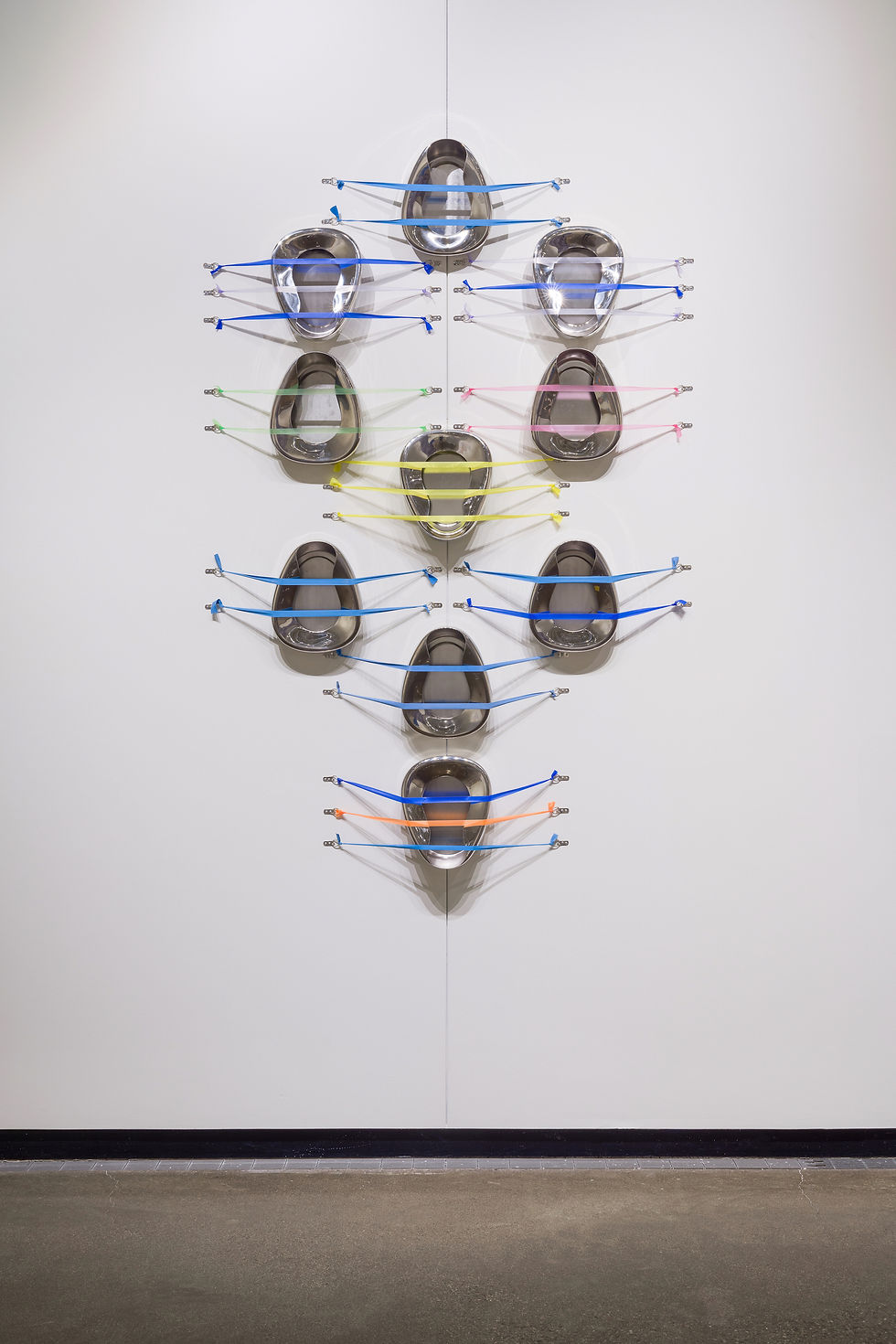Rebecca-Eli Long: The Role of Spite in Keeping You Warm
- Bert Stabler
- Mar 30, 2022
- 3 min read
Updated: Apr 6, 2022

The Role of Spite in Keeping You Warm
2022, Knitted, approx. 4' x 5'
Rebecca-Eli Long
Artist statement:
I am used to my presence not being considered in many spaces on campus. Though my university includes disability as part of their anti-discrimination statement and purports to welcome diverse students, ableism is so normalized that is often difficult to get people to take notice, even of moments that seem blatantly offensive. The disconnect between my experiences and campus policy is disorienting. In using the language, aesthetics, and labor of handmaking to create large-format knitting, I gesture towards the intensity of this disconnect, to assert the presence of disabled students in a profoundly material way, suggesting that there are other ways of being (and theorizing) on campus).
Bert Stabler:
Rebecca-Eli Long comes to art by way of ethnographic research. They completed degrees in anthropology and Appalachian studies, gathering the experiences of retired coal miners dealing with the long-term effects of black lung, before entering their current doctoral program in gerontology and disability studies. In cultivating knitting as their “special interest,” a name often given to the areas of highly specific and intense expertise that many autistic people develop, they have also found a creative practice that incorporates “stimming,” a name given to the repetitive actions many autistic people engage in, sometimes referred to clinically as “self-stimulation.” Through knitting, they embody time through a traditional craft technique commonly associated with older people. In their words, they are planning to “knit their dissertation,” putting their considerable knitting skills in the service of verbal, visual, and material expression that can reflect their early research into the largely overlooked lives of autistic adults, particularly older autistic adults.
In recent years Rebecca-Eli has created an extensive array of finely crafted wearable works. Now, in turning their attention to communicating concepts, their knitting has begun to take up both space and weight, as with a large weighted blanket they worked on while moving from North Carolina to Indiana during the pandemic. Weighted blankets are often a source of comfort for autistic people (among others), while the theme of comfort and tenderness as resistance binds illness and queerness in a manner reminiscent of the massive landmark AIDS quilt project, conceived in 1985 by gay rights activist Cleve Jones.
Activism is an abiding theme in Rebecca-Eli’s research and labor over the years. Not only have they worked on establishing a disability cultural center on their college campus, led an autistic student group, co-initiated a disability-related campus research and creative advocacy project (which I helped with), and begun lobbying for disability legislation, but they have also worked to the point of repeated exhaustion just to demand the basic access and respect they require to academically function in university settings. With The Role of Spite in Keeping You Warm, Rebecca-Eli brings together their interests in knitting, research, writing, and agitating by painstakingly fabricating a thought-provoking large-scale message that simultaneously evokes the pointed poetic truisms of Jenny Holzer, the poignant printed accusations of Edgar Heap of Birds, Alfredo Jaar’s cryptically subversive billboards, Mike Kelley’s ironically domestic Midwestern tapestries, or an elegant artisanal protest banner. Rebecca-Eli will use this piece in their organizing as well as in their research, as part of their long-term project of knotting semi-conscious handicraft labor together with committed and engaged study via a process of personalized public proclamation.



Comments